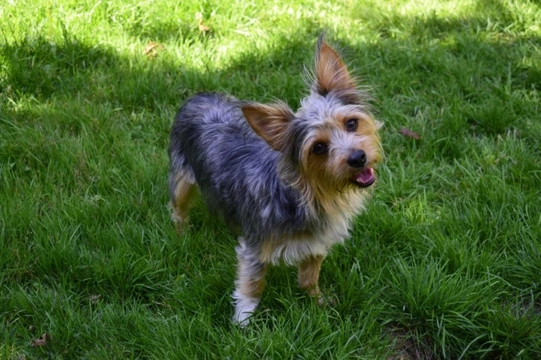
10 Essential Things to Know About the Chorkie Before Buying
A Chorkie is a small hybrid dog, increasingly popular in the UK, created by crossing a Chihuahua and a Yorkshire Terrier. This lively and affectionate breed combines traits from both parents, making them ideal for those seeking a compact, spirited companion.
Being a crossbreed, some details about the Chorkie can vary widely compared to pedigree dogs, so understanding these variations is important before you commit.
This article presents ten essential things to know about the Chorkie to guide your research and help you prepare for responsible ownership.
1. The Chorkie is a Hybrid Dog Type
As a hybrid or designer dog, the Chorkie blends the features of the two parent breeds. Chorkies may be first-generation crosses or bred from subsequent generations, sometimes mated back to a Chihuahua or Yorkshire Terrier to emphasise certain traits. This influences their appearance, size, and temperament.
2. Not a Kennel Club Registered Pedigree
Chorkies are not eligible for official Kennel Club registration because they are crossbreeds. This means no standard breed guidelines or pedigree certifications exist. While this doesn’t affect the dog’s qualities, prospective owners should prioritise reputable breeders who health test their lines and maintain ethical breeding standards.
3. Petite but Size Can Vary
Thanks to the Chihuahua parent—the smallest dog breed—and the petite Yorkshire Terrier, Chorkies are very small dogs, typically weighing between 4 to 10 pounds and standing 5 to 9 inches tall. Yet, size can vary slightly depending on breeding, so expect some natural variation.
4. Moderate Exercise Needs
Chorkies have short legs and modest exercise requirements. Two to three short walks daily, totalling around an hour, plus indoor play, keeps them fit and mentally stimulated. Their energy is lively but manageable even in small homes.
5. Intelligent but Can Be Stubborn
Both parent breeds rank moderately low on canine intelligence scales, so Chorkies may show a bit of stubbornness. They respond best to positive reinforcement and consistent training, learning essential commands rather than complex tricks.
6. Vocal and Alert
Chorkies are known for being quite vocal with a yappy bark, which serves as a good alert system. However, this trait may require management to prevent excessive noise, especially in apartment or close-knit living situations.
7. Susceptible to Separation Anxiety
This breed thrives on company and isn’t suited to long periods of solitude. They can develop separation anxiety if regularly left alone for many hours. If your lifestyle involves long workdays, consider carefully whether a Chorkie suits your situation.
8. Training is Key to a Well-Behaved Chorkie
Because of their small size and appealing looks, some owners overlook the need for proper training. Chorkies require consistent, patient management to prevent behavioural issues such as nuisance barking or possessiveness. Early socialisation and obedience training create a well-adjusted pet.
9. Variable Health Profile
Health in Chorkies is variable, reflecting the range of conditions found in both parent breeds including hypoglycemia, patellar luxation, eye problems, and respiratory issues. Choosing a knowledgeable Chorkie breeder who screens for hereditary health problems is vital for your dog’s wellbeing.
10. Chorkies Are Dogs, Not Babies
Though undeniably cute and affectionate, it’s important to remember that Chorkies are dogs with specific dietary, exercise, and behavioural needs. Treating them with respect and providing appropriate care ensures they live a happy, healthy life.
How to Train Your Chorkie Step by Step
Step 1: Start Socialisation Early
Expose your Chorkie puppy to different people, environments, and other animals as early as possible to build confidence and prevent anxiety.
Step 2: Use Positive Reinforcement
Reward good behaviour with treats, praise, and gentle petting, avoiding harsh corrections due to their sensitive nature.
Step 3: Teach Basic Commands
Focus on simple commands like sit, stay, and come, keeping training sessions short and consistent for better engagement.
Step 4: Manage Separation Anxiety
Use crate training and counterconditioning (e.g., treat-stuffed toys during absences) to help your dog cope with alone time.
Step 5: Address Barking
Identify triggers and redirect or use commands to control excessive barking early to maintain harmony.
Common Health Issues to Watch
Owners should monitor for hypoglycemia, patellar luxation (dislocated kneecaps), eye conditions like glaucoma, tracheal collapse, and allergies. Regular vet check-ups and a balanced diet are essential.
Conclusion
The Chorkie is a charming, compact hybrid dog ideal for those ready to invest in their training, health, and emotional needs. By understanding their size variability, exercise demands, common health concerns, and behavioural traits, prospective owners can responsibly prepare to welcome a delightful Chorkie companion into their home.



